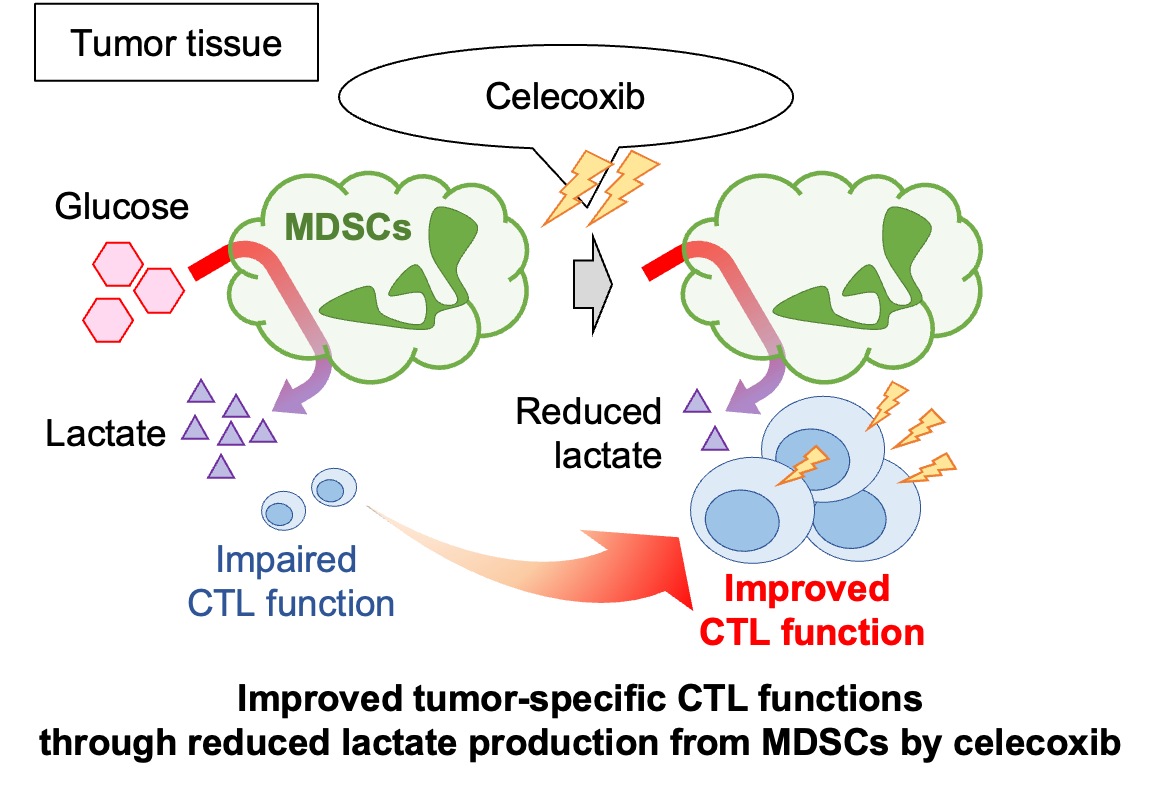List of Research Achievements and Results
List of Research Achievements and Results
Improved tumor immune microenvironment by an anti-inflammation drug
Takayuki Ohkuri Development of Pathology
Improved tumor immune microenvironment by an anti-inflammation drug
Recent studies have shown that activation of the cGAS-STING pathway is a key process in antitumor immune responses and various kinds of STING agonists have been developed for cancer immunotherapy. Despite promising preclinical studies, preliminary clinical results have shown only a modest effect of STING agonists. There is therefore a need to develop more effective treatment strategies. Based on previous observations that COX-2 is frequently overexpressed not only in a variety of cancers but also in tumor myeloid cells and that it suppresses antitumor immunity and promotes tumor survival by producing PGE2, we investigated the antitumor effects of combination therapy with a STING agonist cGAMP and the selective COX-2 inhibitor celecoxib in mouse models. Combination treatment with cGAMP and celecoxib inhibited tumor growth compared with either monotherapy, and the combination therapy induced both local and systemic antitumor immunity. cGAMP treatment decreased PD-1 expression on tumor-infiltrating T-cells and enhanced T-cell activation in tumor-draining lymph nodes regardless of the presence of celecoxib. Meanwhile, although celecoxib treatment did not alter the frequency of CD4+CD25+Foxp3+ regulatory T-cells, it enhanced the expression of costimulatory molecules and glycolysis-associated genes in tumor-infiltrating CD11b+Ly6G+ cells. Moreover, we also found that celecoxib decreased lactate efflux and increased the frequency of IFN-γ- and TNF-α-producing CD8+ T-cells in the tumor microenvironment. Taken together, our findings suggest that combined treatment with celecoxib may be an effective strategy to improve the antitumor efficacy of STING agonists.

